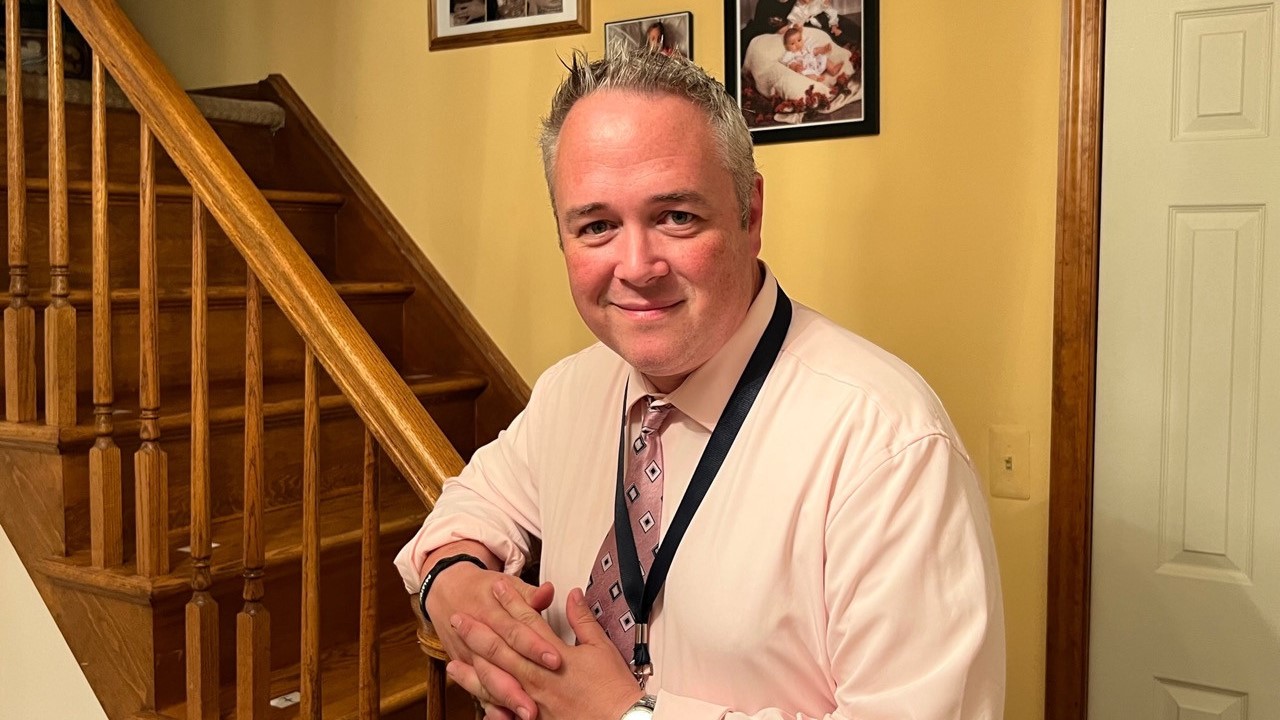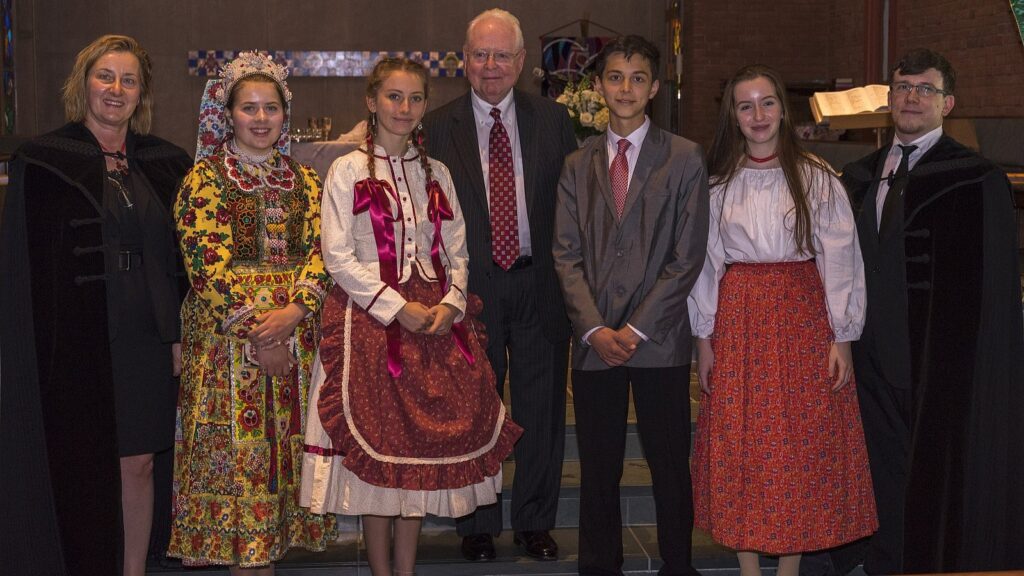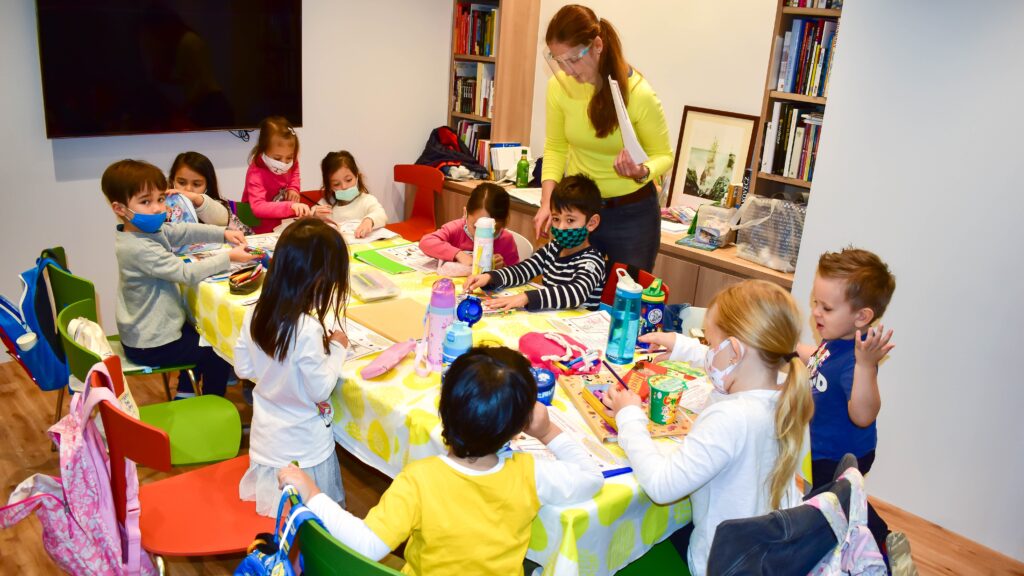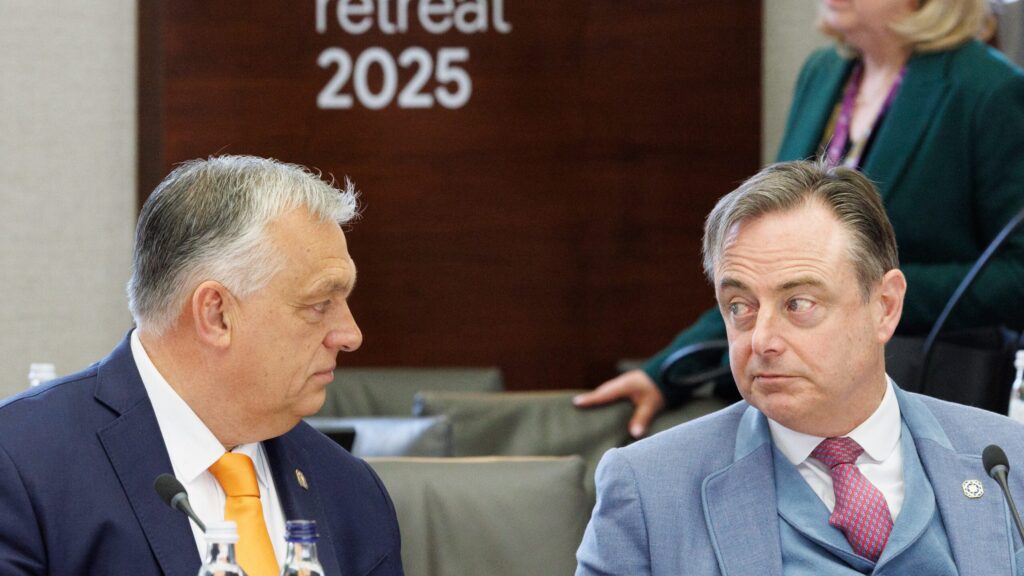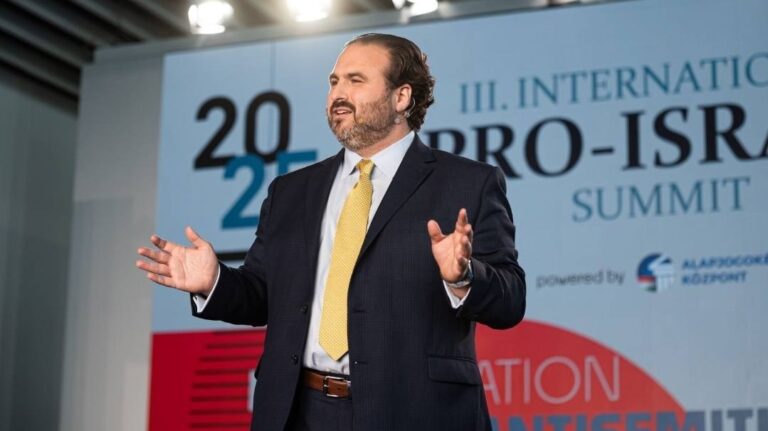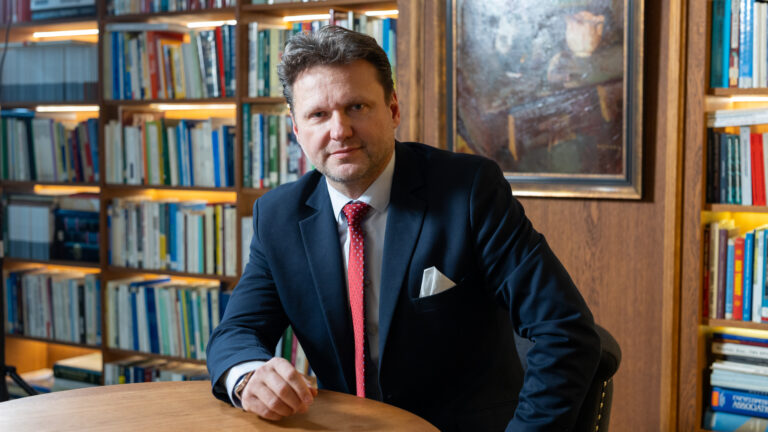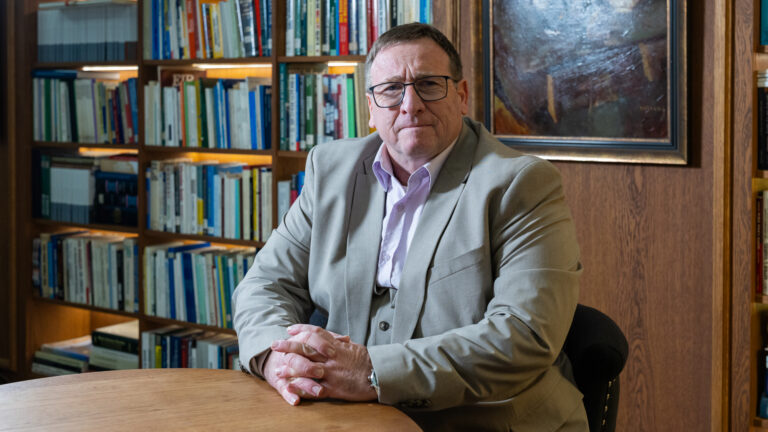This is an abridged version of the original interview published in Magyar Kurír on 24 September 2022.
‘I am 100 per cent Hungarian and 100 per cent American,’ said Tamás Marshall, a father of four, teacher, elementary school principal, parish council member, coordinator of altar servers and church youth, and scout leader. Born in the United States to Hungarian parents who met in America, he and his twin brother grew up immersed in Hungarian culture. Since his teenage years, he has dedicated himself to working with young people, both as an educator and as a father. Committed to preserving Hungarian heritage, he and his twin brother ensured that their children learned English only upon entering the American school system.
***
With so many responsibilities as an educator, a father, and a volunteer at the Hungarian parish in Passaic, New Jersey, and in scouting in Garfield, New Jersey, how did your passion for working with children develop?
It all started with scouting. As a teenager, I, like many others, went through a rebellious phase and found many aspects of my life frustrating, including scouting. I didn’t feel comfortable in my patrol, but my troop leader at the time—who had previously led the Cub Scouts—saw potential in me. She appointed me as the only male Cub Scout patrol leader. That moment changed everything for me. No longer following my peers, I carved my own path and discovered my passion for working with young children. The ability to be creative drew me in, and I remained a Cub Scout patrol leader for four years before taking on the role of Pack Leader for another four years.
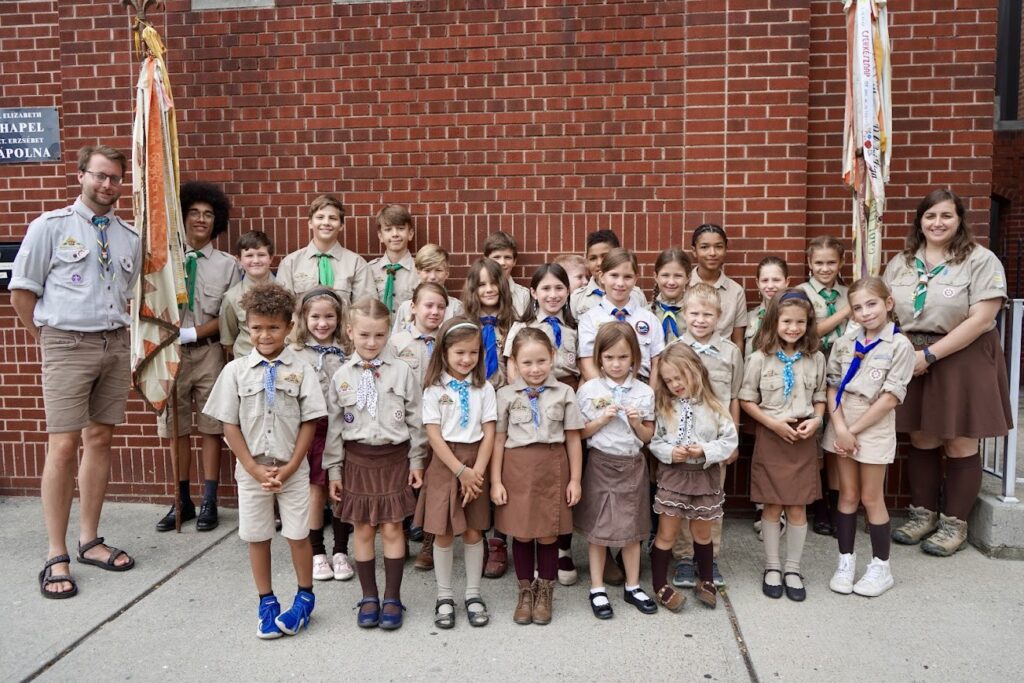
My involvement in scouting influenced my career choice. In high school, I decided to become a teacher, even though I had originally considered writing or journalism. The bond I formed with children through scouting played a crucial role in my decision. As an elementary school teacher, I taught all subjects, but language instruction remained my favorite. For four years, I worked at Teachers College, Columbia University, as a national staff developer in reading and writing methodology, conducting training sessions in nine states. Later, as a principal, I founded a summer literacy institute and learning community that continues to support hundreds of teachers and school leaders. The leadership skills I developed in scouting have been invaluable in my work as an educator.
You received an award from the National Council of Teachers of English (NCTE) in 2017 for your contributions to education and leadership, yet you have remained actively involved in scouting. What keeps you engaged?
When I began my teaching career, I also became a troop leader in Garfield. My twin brother and I enjoyed leading scouts as teenagers, largely because of the strong sense of the Hungarian community. While some of our American school friends spent Friday nights socializing, we preferred to dedicate our time to our Hungarian community. Later, my enthusiasm for scouting leadership only grew. I never felt burnt out because I truly loved every task. This was possible because I was surrounded by supportive people who shared my passion. We continually welcomed new members, organized innovative events, and strived to improve the experience for everyone involved. Challenges and conflicts inevitably arise when working with people, but I never lost my passion for scouting. My diverse responsibilities also kept me engaged. I led district Cub Scout camps ten times, served as a leadership training camp director ten times, led a camp in Australia, and worked as an instructor in Germany. These experiences allowed me to explore the world and gain a deeper appreciation for our community.
‘The ability to be creative drew me in’
Later, as a district director, I coordinated scout troops along the East Coast for three years. I didn’t see my role as a ‘boss’ but rather as a mentor—the patrol leader of troop leaders. Eventually, I took on another meaningful role: for ten years, I served as a troop development commissioner, helping establish new scout troops worldwide. This creative position enabled me to travel extensively, and where I couldn’t go personally, I sent others to offer guidance. During my tenure, we officially established scout troops in nine locations, including Connecticut, Florida, San Diego, Portland, Seattle, Vancouver, Edmonton, London, and Nuremberg. Several more were in early stages of formation, such as in Ireland, when I transitioned out of the role. I cherished the personal connections I made and felt honored to be a sort of ‘godfather’ to these new troops.
Now, as a regional director in the Hungarian Scout Association in Exteris (KMCSSZ), what are your responsibilities?
Region III of the Hungarian Scout Association encompasses the USA and Venezuela, as the latter is geographically closer to Florida than to Brazil or Argentina. This is the largest Hungarian scouting region worldwide, with troops in 16 cities. My primary role is to train troop leaders and district directors through Zoom discussions, leadership methodology videos, and direct consultations. I aim not to be an authoritative figure but rather a supportive mentor. Recently, I traveled to Cleveland to attend a scout event, where I met with local directors to discuss strategies and address challenges. I deeply enjoy this aspect of my work.
You also volunteer extensively at St. Stephen Parish in Passaic. How did you come to take on so many responsibilities?
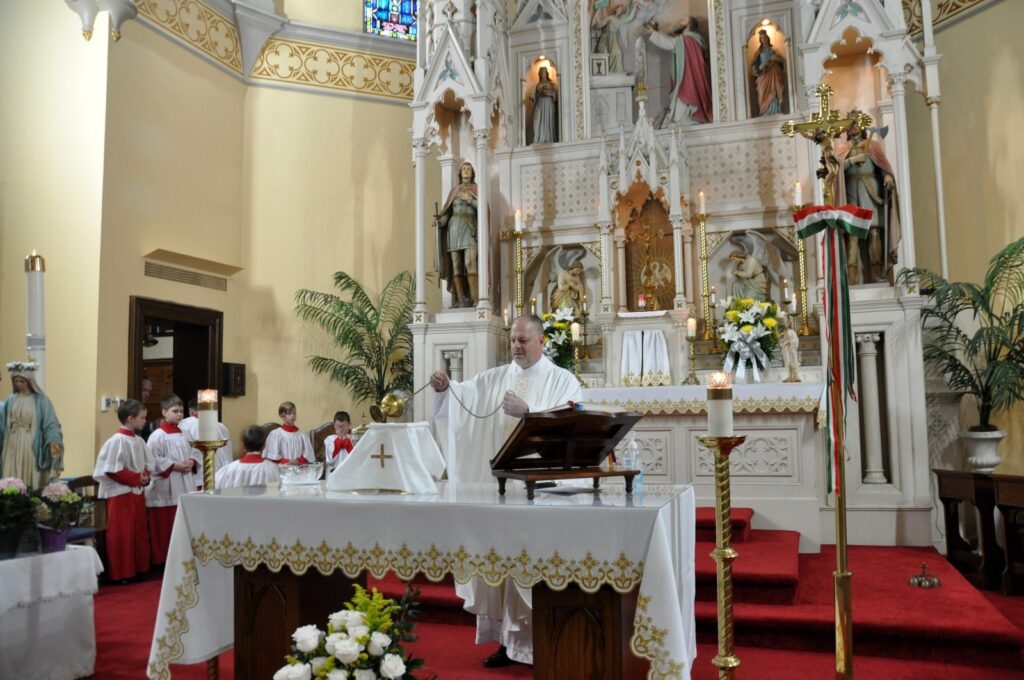
In addition to my work in elementary education, I taught at the Hungarian school in Passaic for ten years and taught religious education every other Sunday before Mass. As a church council member, I have been involved in various aspects of parish life, including liturgical organization and religious education. Over time, I naturally took on more responsibilities, eventually becoming the coordinator of religious education. However, I don’t see myself as a ‘boss’ there either—rather, I facilitate and support the work of others.
Both you and Father Laci Balogh have emphasized the importance of cooperation among Hungarian organizations. How does this play out in Passaic?
We are fortunate to have a well-functioning collaboration between different Hungarian organizations. In some places, only one group is active, while in others, multiple groups exist but fail to cooperate. Here, we recognize the importance of unity. Scouting, for example, seeks to include not only religious Hungarian families but also those who may not be churchgoers. Our goal is to strengthen the Hungarian community as a whole. Since Father Laci Balogh arrived, parish life has flourished. More children attend church now than when I was growing up. We currently have 45 children enrolled in religious education, preparing for sacraments, and learning about Catholic traditions. Our altar server program has also expanded; I personally train new recruits before Mass. Additionally, we hold monthly children’s Masses, featuring youth-led readings and music, which have been well received.
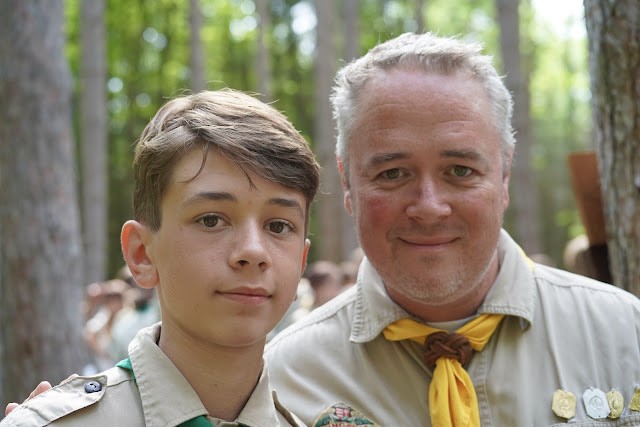
Your commitment to Hungarian heritage extends to your own family. How do you balance this within your household?
Preserving Hungarian culture at home is a challenge, but it is not a battle against our children—it is a journey with them and for them. It requires daily effort and sacrifice. Our Hungarian community is 45 minutes away, and after long weekdays, we must still find time to ensure our children practice reading in Hungarian. Fortunately, their best friends are also Hungarian, just as mine were growing up. Their primary motivation is the anticipation of seeing their friends on Saturdays, not just Hungarian identity or national symbols. As parents, it is our responsibility to facilitate this, whether by driving them back and forth, reinforcing the use of the Hungarian language, or helping with assignments, but most importantly, teaching them a love of this dual identity of being 100 per cent Hungarian while being 100 per cent American.
With your many responsibilities, how does your wife support this effort?
Although my volunteer work isn’t directly for my children, it strengthens the institutions where they learn, ultimately benefiting them. Having a supportive partner is essential. My wife takes on significant community roles herself, on top of working at a Hungarian preschool. For five years, she led the scouts’ parents’ association. During that time, I either actively helped her or took care of our children. Preserving Hungarian heritage is a collective effort, and without strong family support, it would be far more challenging, even impossible. We really need to be there for one another. This is true in the family, and also in the community. It’s about us helping each other on a small scale so that we can serve others on a larger scale. I guess that’s the secret!
Related articles:

